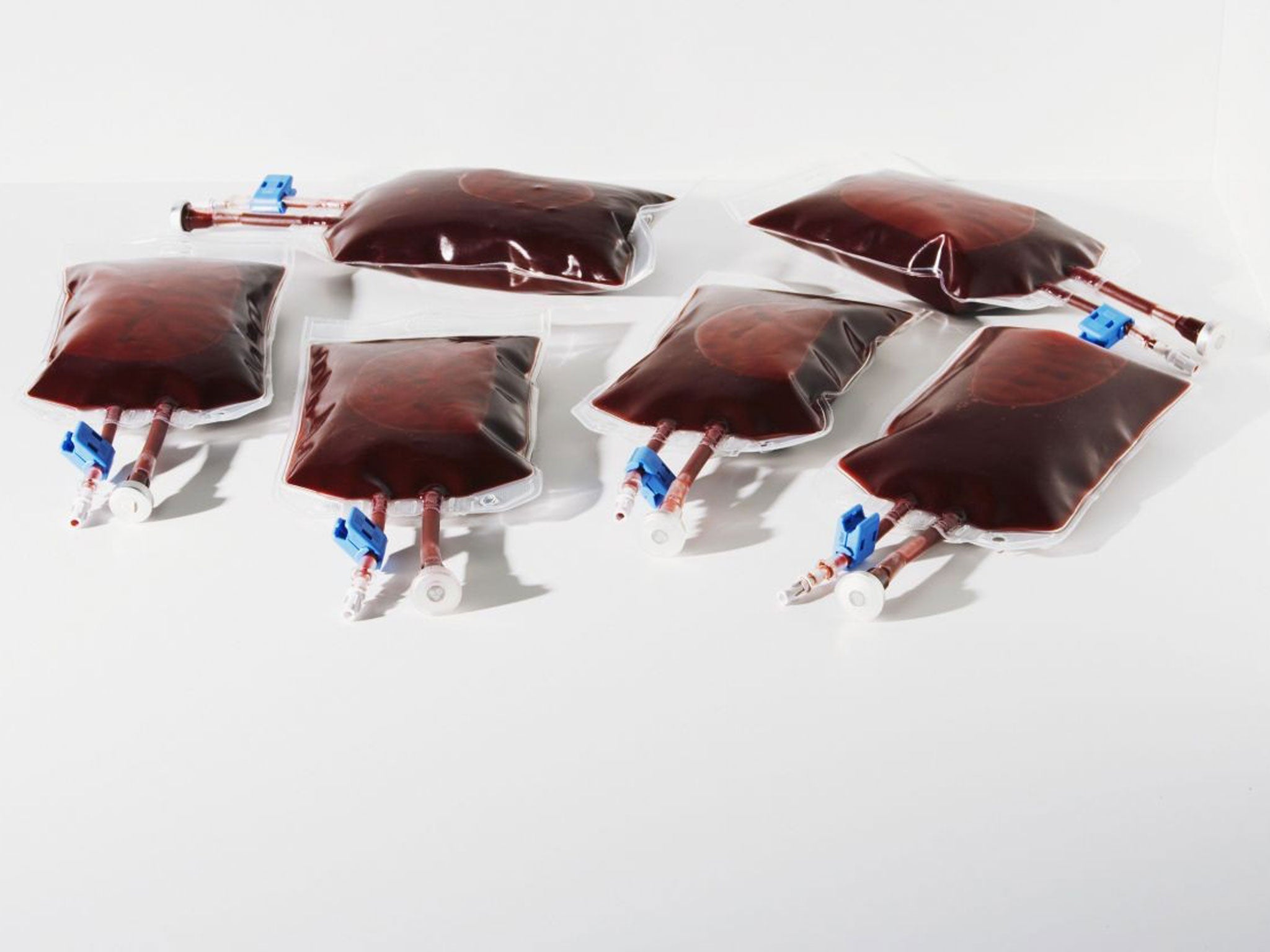Gone right off eggs? Try blood (even in ice cream) ... The grisly ingredient is overlooked, say cutting-edge culinary experts
The Nordic Food Lab says blood is nutritious, delicious and could be the solution to the growing problem of allergies

Your support helps us to tell the story
From reproductive rights to climate change to Big Tech, The Independent is on the ground when the story is developing. Whether it's investigating the financials of Elon Musk's pro-Trump PAC or producing our latest documentary, 'The A Word', which shines a light on the American women fighting for reproductive rights, we know how important it is to parse out the facts from the messaging.
At such a critical moment in US history, we need reporters on the ground. Your donation allows us to keep sending journalists to speak to both sides of the story.
The Independent is trusted by Americans across the entire political spectrum. And unlike many other quality news outlets, we choose not to lock Americans out of our reporting and analysis with paywalls. We believe quality journalism should be available to everyone, paid for by those who can afford it.
Your support makes all the difference.It is an "edgy, almost forbidden" ingredient that could make the bravest of cooks turn the colour of the traditional chef's uniform... white. Despite blood being the clearest "brute fact" that animals have been slaughtered to put food on a plate before us, one of the world's top culinary teams is calling for blood to be used more widely in the everyday food we eat.
The Nordic Food Lab says blood is nutritious, delicious and could be the solution to the growing problem of egg allergies. The Copenhagen-based lab has become an innovator in culinary science since it was created in 2008 by the Danish chef René Redzepi, the man behind Noma, three-time winner of the best restaurant in the world title.
Blood has similar properties to eggs in cooking and also is a good source of iron, Elizabeth Paul of the Food Lab said: "Blood has become somehow edgy, almost forbidden, yet it has been used as food for as long as animals have been killed and eaten. It is elemental, both mystical and mundane. And it makes us damn curious in the kitchen."
They believe it is a natural replacement for egg whites and should used more widely now that eggs are Europe's second most common food allergy. The lab had successfully experimented in substituting blood for eggs in cakes, meringues, pancakes and ice cream, among other sweet dishes.
Using blood to make meringues, she wrote, seemed "difficult texture-wise at first, but once the whipped blood and sugar form this magnificent foam, all doubts are cleared". "Probably one of the strangest textures Nordic Food Lab has seen, and one of the most beautiful," she said.
She admitted that using blood in the kitchen "drove us to the edge". While blood is still used to make sausages and black pudding, Ms Paul questioned why "the tradition of cooking with blood [is] disappearing from our kitchen". She said that people seemed to have forgotten how to use it.
The food lab is no stranger to pushing culinary boundaries. In 2012, it made headlines when it argued that humans should start eating more insects, lauding their high protein content and role as a more sustainable form of food production. Grasshoppers, black ants and bee larvae were all recommended.
One chef unlikely to embrace their recommendation is Nick Nairn, who vomited on his own television show after watching a Hebridean crofter stir up blood to make black pudding. "It was probably the worst moment in my life," he said later, blaming the "more than a few hot toddies" that he had drunk the night before.
"It had been lying out overnight in the bucket and had congealed. And when Ena [the crofter] started putting it all together, it just slopped out," he said. "That's when I knew I was going to lose my breakfast."
Daniel Doherty, the executive chef at Duck & Waffle in London, who was awarded the "rising star" title in the 2013 Tatler Restaurant Awards, said he was "up for trying anything new".
"I think a lot of people would enjoy it, provided they don't think too much into it," he said. "I can see people being squeamish, but it's totally unnecessary, considering a lot of things that sneak their way into food, burgers, for example."
Blood ice cream
This recipe from the Nordic Food Lab is inspired by variations of the traditional Italian dessert sanguinaccio. Uses one Pacojet container. Serves 12
We have run trials with roasted barley koji (barley grains mixed with a fermenting agent) which is a brilliant alternative and ingredient in its own right – especially in combination with blood, giving body, bittersweet complexity and increasing the malty notes of the moulded, toasted grain taste.
300ml pig blood
60g roasted koji
300g milk
200g cream
88g trimoline
2.8g guar gum
The day before, grind roasted koji to fine powder and cold-infuse it into 300ml of milk. Leave at 4C for 24h.
On the day, pass cold infusion through a superbag and measure yield. Add more whole milk to reach weight of 300g.
Strain pig blood to remove coagulated protein clumps. Add cream, blood and trimoline to mixture and start to heat over water bath while stirring constantly. Once temperature reaches 50C, add guar gum and continue stirring until mixture thickens to chocolate brown custard. Heat until 75C and hold at temperature for 15 seconds. Fill Pacojet container and freeze.
Once frozen, spin in Pacojet [professional-grade blender] and serve.
Join our commenting forum
Join thought-provoking conversations, follow other Independent readers and see their replies
0Comments